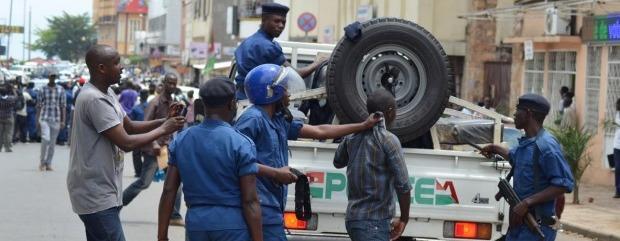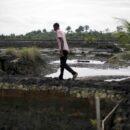Evidence-Based Peacekeeping
In most areas of public policy, gathering and analyzing evidence for the nature of the problem and the efficacy of response is a sine qua non for designing and implementing programs. The statistical analysis of disease patterns is the basis for public health policies and the discipline of epidemiology. Police services routinely gather and analyze crime data in order to decide where, when and how to deploy their officers and assets. The military officers commanding counterinsurgency campaigns in Afghanistan similarly examine data-sets for the kinds of incidents they face, and their spatial and temporal trends. In business this kind of data collection and use can make the difference between profit and bankruptcy.
Evidence is rarely clear cut. There are often multiple interpretations for trends. And there can be a tyranny of statistical accounting, which fails to capture important elements that are not being measured. Nonetheless, a commitment to evidence-based policymaking requires a commitment to taking evidence seriously.
International peacekeeping operations are one of the last bastions that have yet to yield to evidence-based planning and assessment. The classic form of peacekeeping, as an extension of inter-state diplomacy, emphasized discretion and the cooperation and confidence of the parties to the conflict, who were also the parties to the peacekeeping agreement. Any public statements needed to be cleared through diplomatic channels. Combined with the intrinsic caution of any organization subject to multilateral decision-making, it is understandable that the UN Department of Peacekeeping Operations was reluctant to make or publish any assessments in its own right.
The world has changed. The demand for evidence to support claims of need or policy success cannot be resisted for long. International peace support operations have much more complex tasks and operate in different environments, including ongoing complex conflicts such as Darfur and DR Congo. Most importantly, a mission with a mandate that includes the Responsibility to Protect is required to undertake tasks that usually fall upon national police services and armed forces. How should a force with an R2P mandate make its tactical deployment decisions? How should it assess its success or otherwise?
Clearly, today’s peace support missions, especially those with R2P tasks, require a rigorous evidence base for policy planning, operational deployment, and strategic evaluation of progress. Without such an evidence base, mission design and deployment, and both internal and public evaluations, will remain irredeemably subjective and prone to manipulation in support of political agendas.
In this context it is unfortunate that UNAMID’s efforts to introduce some rigor into assessments of the situation in Darfur have been so controversial. The estimates for violent incidents produced by UNAMID based upon the information compiled by the Joint Mission Analysis Centre are not perfect. There are gaps and inaccuracies, and the data for sexual violence are particularly incomplete. Nobody claims that the (more reliable) figures for violent fatalities represent the total sum of harms inflicted upon the Darfurian people.
Nonetheless, the JMAC data are the best that exist at present. Lethal violence is an important element of the crisis. If the data are incomplete then the challenge is to invest more in the reporting systems. The data show important geographical distribution, temporal trends, and patterns of violence. These are empirical claims that can be verified or falsified. If the data fail to provide a complete picture of the nature of the Darfur conflict, then those who prefer to characterize the conflict differently, must either produce better data in support of their claims, or construct different definitions for the conflict.
Without doubt, the calls for evidence-based peacekeeping will increase. Improved data collection and analysis will follow, along with metrics for the measurement of crisis and response.







The days for seeing Peacekeeping as a science are not here yet, I believe. Hence the reason why efforts that work to maintain peace are not as seriously invested in. However, with scholars such as the author of this article and professors who advocate the investigation and research of truth in circumstance like Darfur are a major step towards a human society that will be able to hold the capacity of how fragile human security and peace is, and its value to everyone in the long run.